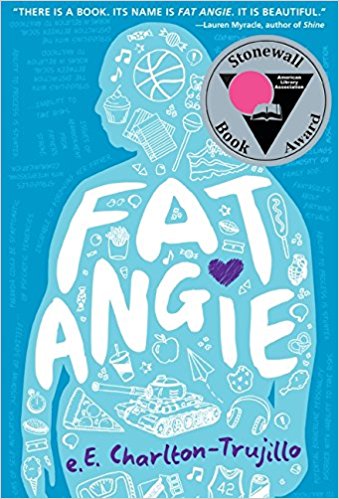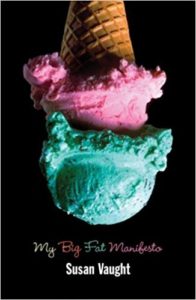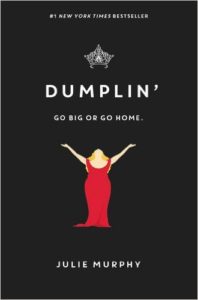 I’ll start off by saying that this is an unusual book. This is mostly because of the point of view, which I’ll go into more below.
I’ll start off by saying that this is an unusual book. This is mostly because of the point of view, which I’ll go into more below.
The novel is about a girl named Angie who had a very public emotional breakdown after her sister was captured and presumably killed in Iraq. Angie’s convinced she’s still alive, but no one else believes that. Before the book opens, Angie started falling apart—she gained a great deal of weight and tried to kill herself in front of a packed gym.
It’s not clear whether the bullying started before her sister went missing, but as the book opens, it’s vicious. There’s one particularly mean girl, but everyone mocks her for being fat and many people taunt her about her missing sister. Even her own adopted brother makes fun of her. Her mother is impatient with her and thinks she’s doing everything for attention. Her mom even found a therapist for Angie who’s totally unsympathetic.
Then her neighbor, a popular boy named Jake, sort of befriends Angie. And a new girl named KC arrives. KC isn’t impressed by all the popular kids and instead gravitates toward Angie. Soon they become friends and maybe more, but it’s a relationship full of turmoil. Because in their conservative town, being different isn’t very acceptable. Angie’s mom can’t tolerate her being with a girl, which creates the first rift. Things degenerate from there.
During all this, Angie decides to try out for the varsity basketball team because before her sister joined the military, she was a basketball star. She starts training for it with Jake’s help and tries out. The rest of the story follows her basketball pursuit and her relationships with KC, her brother, Jake, and her mom.
I mentioned the point of view above—in most contemporary YA, it’s 1st person, though 3rd person close isn’t unusual. 1st person just means it’s told using “I” and we get deep into the main character’s mind. 3rd person means “he/she” is used for the main character and the “close” just implies we get to nearly the same level of emotional depth as with 1st. This book is 3rd but it doesn’t feel very close at all. Throughout the book, Angie is referred to as “Fat Angie” (by the author, I mean), which I found very distancing. I never did feel like I knew Angie that well. I knew she was fat and had no self-confidence, but that was about it.
There are also phrases that are repeated (such as Angie’s “couldn’t-be-bothered mom”), which also pulled me out of the story a little each time. And KC speaks in very distinct (and unfamiliar to me) slang, which I didn’t find totally credible. I think stylistically, the book is very unique and that could appeal to a lot of people, even though for me it was distracting and kept me from getting as into the story as I wanted. But it still is a lesbian coming-of-age story, something we don’t get a lot of (I think there are a lot more stories about gay boys than girls out there…), so it’s probably worth a peek if you are looking for that.

